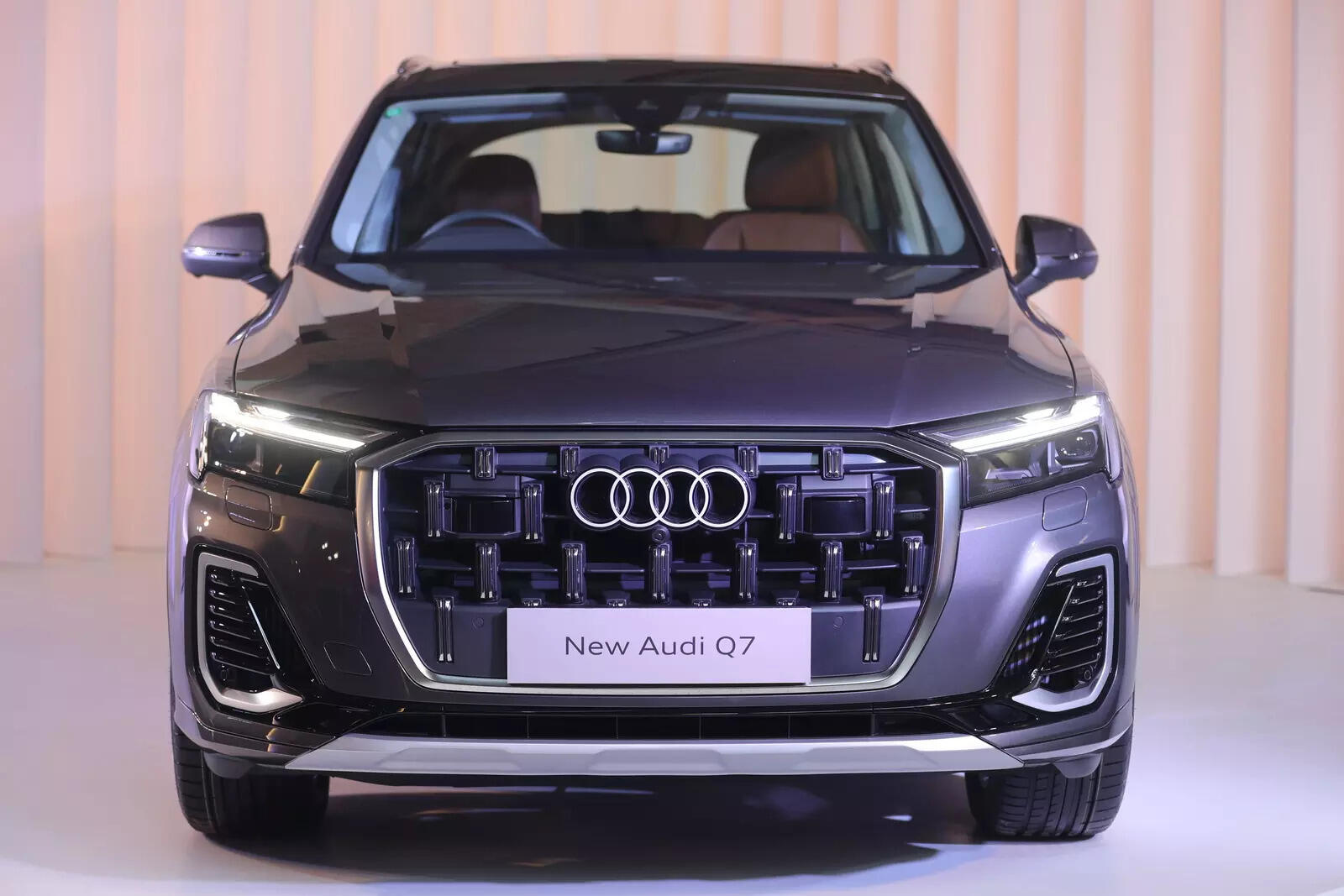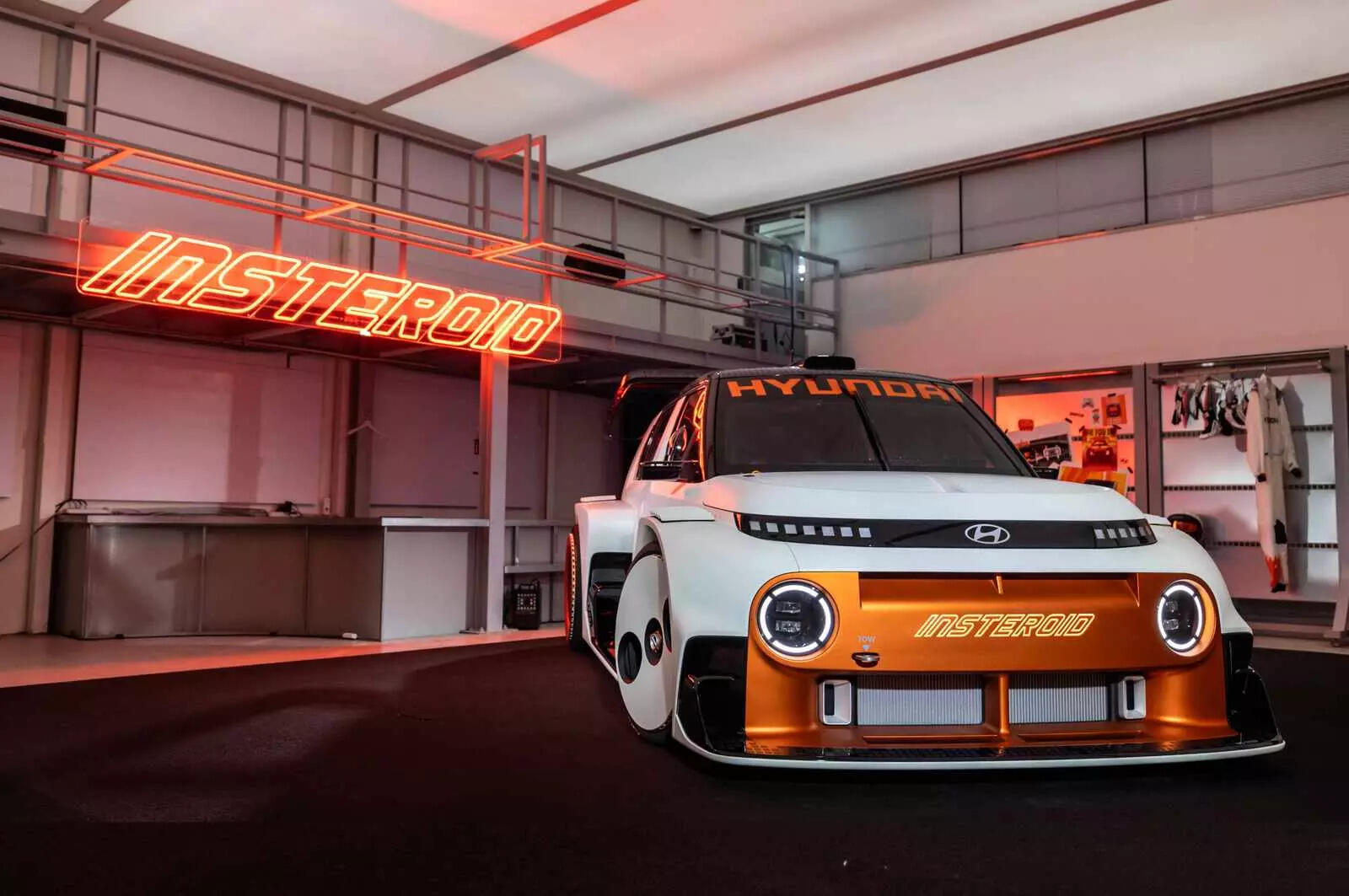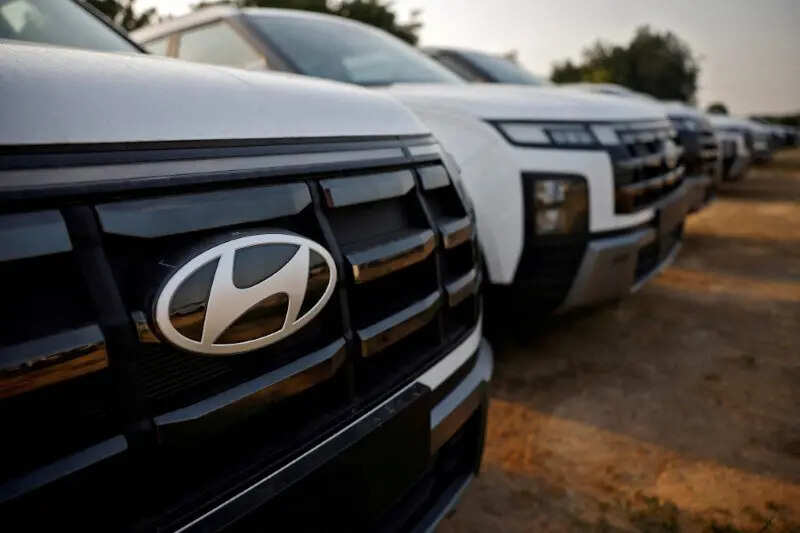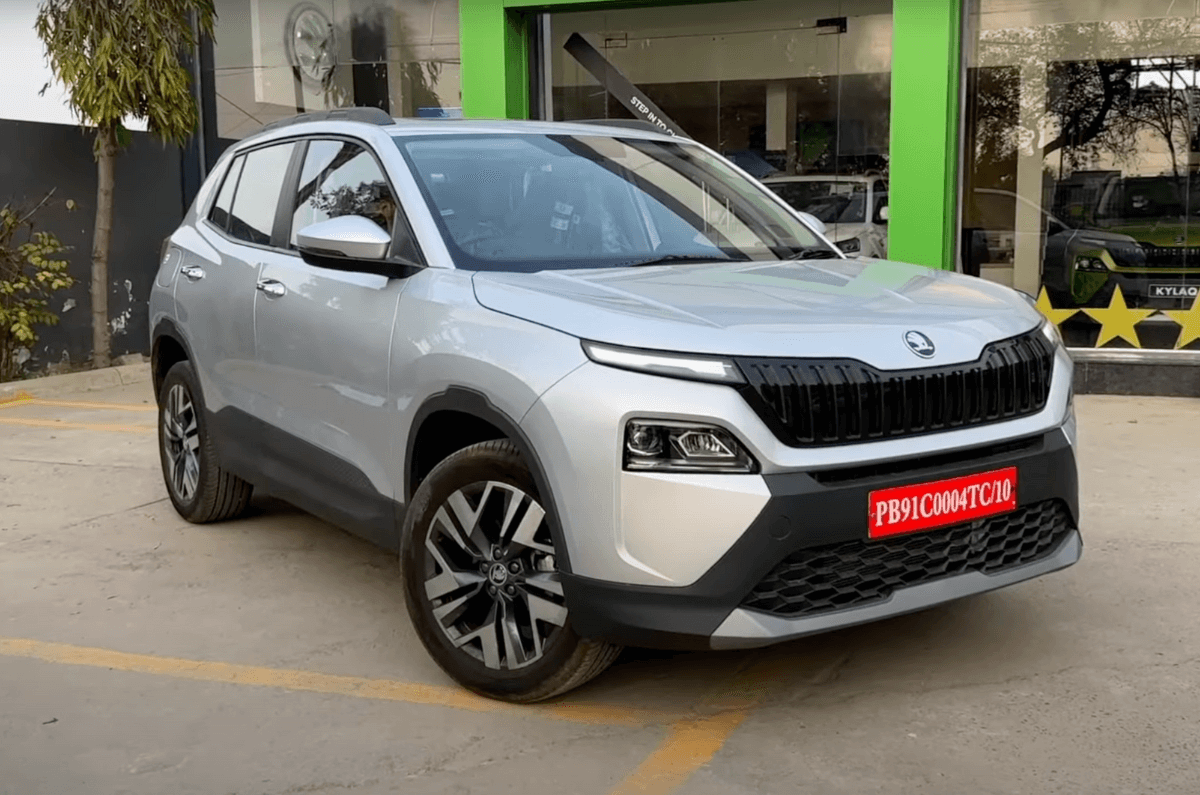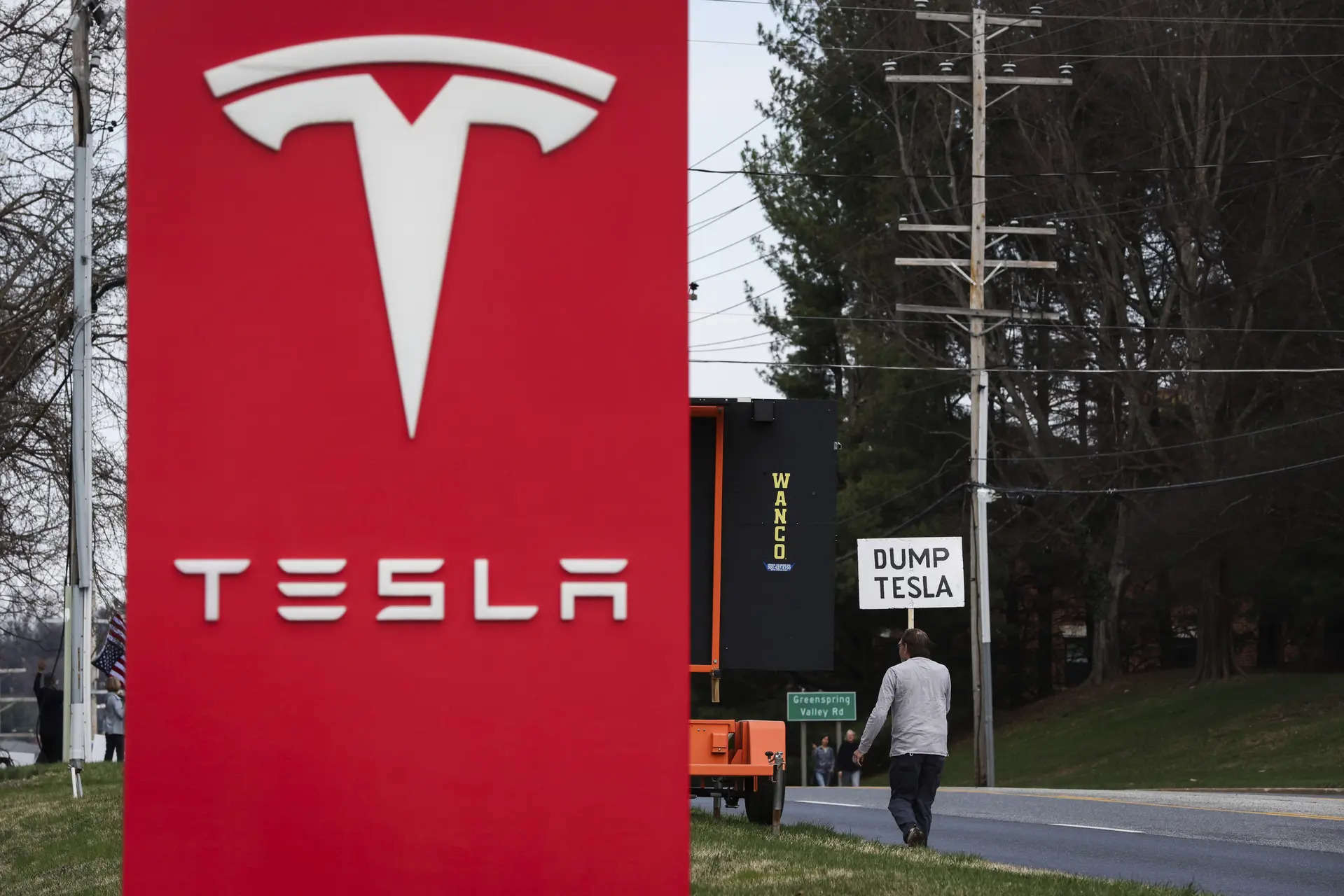 Tesla cars have been torched in several places in US and in Germany.
Tesla cars have been torched in several places in US and in Germany.Confronted with Tesla’s sliding fortunes and investor grumbling over the negative sentiment stemming from his political engagement, Elon Musk has hinted that he might step down as chairman of the Trump administration’s Department of Government Efficiency (DOGE). The move might come too late to salvage Tesla, the shining new avatar, till recently, of the quintessential American automobile.
When the first Tesla arrived in 2008, the shiny Roadster could accelerate from 0 to 60mph in 3.9 seconds, had a top speed of 125 miles, could run 244 miles on a single charge, and was extremely energy-efficient (equivalent to 50km per litre of petrol). Its carbon footprint would be low. And, at around $100,000, it oozed exclusivity. It spelt Style, Conscience and Purpose.
Tesla went on to produce six more models. Tesla’s valuation in the market was larger than the combined value of half a dozen traditional car biggies. Elon Musk, who had joined the company in 2004 as its largest shareholder, a year after the company had been founded, became one of the world’s richest men. Tesla ruled the popular imagination as the shiny embodiment of technology’s promise.
Then, Trump happened. Elon Musk became Trump supporter and funder, Mar-a-Lago habitue, head of the Department of Government Efficiency taking a chainsaw to the sprawling govt machinery, and, in public perception, close confidant of the world’s most powerful man. As Musk’s fortunes rose, Tesla’s have slumped.
Sales saw a decline for the first time in 2024. The share price is down 47% from its peak. People stage random attacks on Tesla showrooms. Tesla cars have been torched in several places in US and in Germany. How did Tesla manage this swift transformation from star burning bright to burnt-out cinder of disillusionment? There are five parts to the answer, relating to Trumpian politics, Musk, Tesla’s models, the competition, and electric cars as a genre.
Clash of values
To buy an electric car, you need to have concern for humanity at large, your climate impact. You must trust scientific evidence and believe that state action is, at times, benign. Those who are willing to buy electric cars, despite the high upfront cost and range anxiety that go with it, tend to be liberals.
Trump and his supporters oppose liberals, slam climate change as a hoax. Trump has cancelled Biden’s electric car mandate. Trump’s move to cut taxes and govt spending hurts the poor, his enmity towards diversity, equity, and inclusion violates liberal principles. Trump’s core supporters seek to undo the separation of powers among the judiciary, the legislature and the executive. They drive a stake through liberal conscience. Liberals now abhor Tesla.
Missing electric vehicle ecosystem
US is a big country with poor rail and air connectivity. The car is essential to reach very many places. So, faced with a trip stretching to a few thousand or few hundred miles, Americans jump into their cars and drive.
Availability of EV charging stations cannot be taken for granted, unlike gas stations. If the EV population is large enough, private enterprise would build charging stations for them. But without charging stations, few apart from the committed liberals would buy EVs. State action is called for to break out of such chicken-and-egg conundrums. Biden’s Infrastructure Act funds new EV charging stations. His Inflation Reduction Act offers tax rebates on EV purchases. Trump now seeks to reverse what he sees as Green chicanery.
Musk as DOGE chief
DOGE is arbitrarily sacking people, defunding welfare programmes, and terminating US external aid, on whose food purchases many American farmers depend. When people see Tesla, they see Musk, and are furious enough to, in places, vandalise Tesla showrooms, and even torch Tesla vehicles.
European anger at Musk | Tesla sales are down 40% in Europe, 70% in Germany, even as EV sales rise, after a pause. Trump’s seeming betrayal of Europe over Ukraine, Zelenskyy’s televised humiliation at White House, Trump’s cosying up to Putin, whom Europe has anointed as its existential enemy, Vance’s excoriation of European democracy at Munich Security Conference in Feb – all these kill Europe’s appetite for Tesla.
Scandinavians are angry over Musk’s resistance to unionisation at Tesla’s Swedish factory. Obstruction to unions and collective bargaining is perceived as an affront to European culture, and not just to labour rights. Germans are outraged at Musk and Vance’s endorsement of the far-right AfD in German elections.
Arrival of EVs that outdo Tesla | Tesla is no longer the most technologically advanced electric car. Its fast charge takes 15 minutes. Chinese rival BYD has announced a five-minute charge that can juice the car to run 400km. BYD’s self-driving technology is at least as good, if not better, and is available at no extra cost, whereas Tesla charges a premium of $9,000 for it. Steep tariffs protect the American market from Chinese EVs. But that will not kill all competition. Volkswagen has announced a 50% joint venture with Tesla-rival Rivian. GM and Ford are improving their own EV offerings, and these do not carry Muskian toxicity.
As of now, only a shadowy dark can be made out at the end of the rough terrain that stretches out in front of Tesla. It is not clear that things will change even if Musk himself takes over the wheel.










